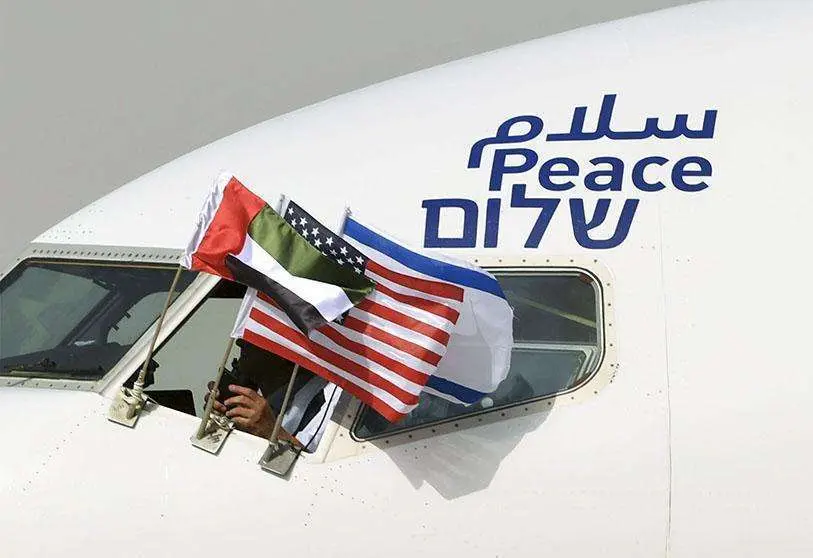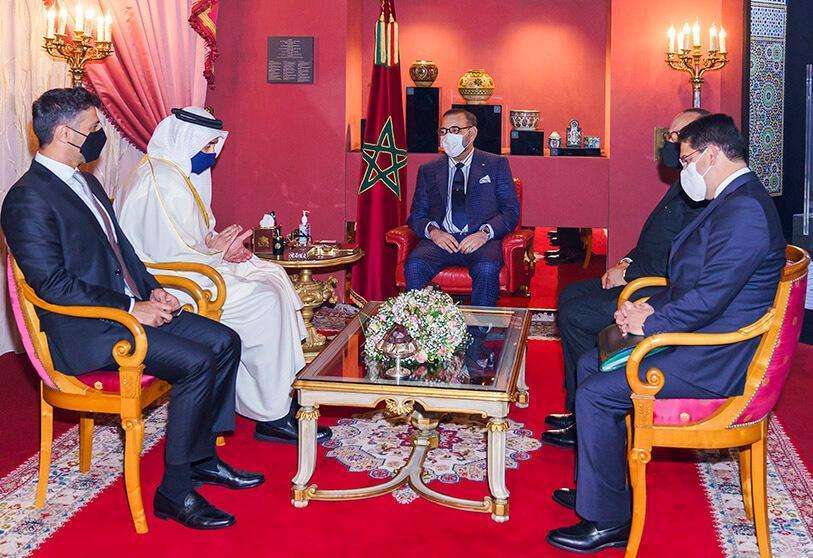Emiratos y la amistad entre Marruecos e Israel alborotan el norte de África

The geopolitical seismic shift triggered by Morocco's decision to establish relations with Israel in exchange for recognition of sovereignty over Western Sahara is also shaking and putting pressure on Tunisia, Algeria and Mauritania, the latter emerging as the next country to join the United Arab Emirates' wealth-driven shift.
Experts and analysts agree that Abu Dhabi's money, together with political pressure from Israel and the discreet backing of the United States, forged during Donald Trump's presidency, has become a solid strategy for the transformation of the region.
And that this will not change with the arrival of the Biden Administration, determined to reduce Russian influence in Syria and Libya with these partners, and to curb Turkish expansionism in the eastern Mediterranean and Africa - especially in the North and Sahel - where Moscow and Ankara have opened dozens of embassies, consulates and air routes in recent years.
"The Trump administration has been interventionist in North Africa through two issues that have had real consequences," explains Jalel Harchaoui, senior researcher at the geopolitical analysis centre Global Initiative.
"There is an Emirati angle that makes us not expect there to be a real intention to reverse what was done by the previous administration," he adds, referring to the Moroccan decision and the UAE's support for Marshal Khalifa Hafter, the guardian of the unrecognised government in Libya and the country's strongman.
In line with this argument, Harchaoui underlines the enormous amount of money that has been invested and granted in aid to Mauritania over the past year, a country that he predicts "would (soon) like to imitate Morocco" in the strategy of recognising Israel, encouraged by the powerful Al Nahayam family.
Emirati money also flows regularly and abundantly in Tunisia, a country mired in an acute economic and social crisis that threatens to drown the only transition still flourishing from the withered 'Arab Spring'.
This has been compounded in recent months by the tussle between the head of state, Kaïs Said, who has an excellent relationship with the UAE, and the speaker of parliament and leader of the conservative Islamist-leaning "Ennahda" party, Rachid Ghannouchi.
Ghannouchi, who has the financial and political backing of Qatar, pushed through a government reshuffle last week that saw the departure of ministers close to Said, which Said has since tried to boycott by refusing to swear them in.
Also participating in the fight against the Islamists is the Free Desturian Party (PDL), which defends the interests of businessmen, policemen and politicians nostalgic for the old regime who took refuge with their fortunes alongside the dictator in Saudi Arabia and other Arab states.
Against this backdrop of widespread crisis, with state coffers empty and the pandemic at its peak, a former minister revealed days ago that former EU ambassador Laura Baeza informed him in 2015 that Israel was planning to demand millions in compensation from the Tunisian state for properties abandoned by Jews in their flight.
"Israel can put pressure on Tunisia to pay compensation at any time, and I don't know if normalisation will present itself as an alternative to money," warned Hatem El-Echi.
"The sums mentioned are very large and exceed Tunisia's budget," he added on an old issue, but one that has resurfaced strongly in this context of crisis.

If there is one Arab nation, however, where activism against Israel and support for the Palestinian cause is a matter of state - and deeply rooted among the people - it is Algeria, a country also mired in the most serious economic, political and social crisis in its recent history.
A sanctuary in the 1970s for numerous armed movements, it suffered a major earthquake last week after one of the local television stations broadcast an unprecedented debate on the possibility of Algerian athletes being allowed to compete with Israelis, something hitherto unthinkable.
The programme was immediately criticised by the government, which warned in a statement that the channel would be shut down and warned that such discussions "threaten national security" and are driven by "foreign powers" seeking to destabilise the country.
"Morocco's decision is a major blow to Algeria, with which it maintains a regional standoff, and which is the Polisario's main supporter", warns a European diplomat based in the country. "If Mauritania joins, as it seems, it would change the balance in North Africa, a very sensitive area. Algeria is weak, it would be cornered and the consequences are unpredictable", he warns.








